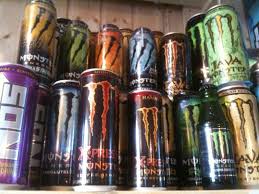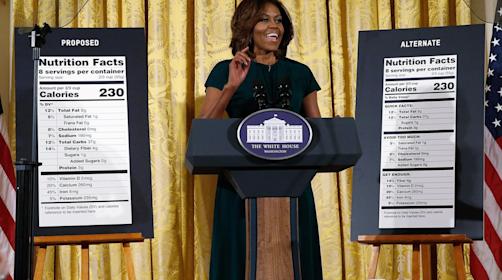It is no small surprise that mega corporations have bought their way in to monopolizing food consumption for the youth in this country, and no small surprise those interests are working to undermine nutritional diligence.


Likewise the convenience of ready made "meals" offers parents a corner to cut in the busy schedules of young adults who have extra-curricular activities. So we each have an out, kids eat what is sold to and marketed to them and what their peers are eating; parents have other things that seem important.
Yet we cannot ignore the fact that the body wants and needs quality prepared food, and though we may not come down on the side of the perfect parent at every meal, there are certain ways we can think about healthy eating that will help parents to frame the issue in a more "achievable" light.
Here is a quick introductory guide to How To Think About Nutrition. There are no doubt other perspectives more attuned to peak performance, but we are looking for a parents' quick and easy guide to get us started...
Athletes should know their percentage of body fat. Weight Gain and/or loss should be pursued based on this number rather than on body image. Structured weight loss and gain guidelines appear below.
~~~~~~~~~~~~~~~~~~~~~~~~~~~~~~~~~~~~~~~~~~~~~~~~~~~~~
~~~~~~~~~~~~~~~~~~~~~~~~~~~~~~~~~~~~~~~~~~~~~~~~~~~~~
Source for this article -- Alan R. Figelman and Patrick Young, Keeping Young Athletes Healthy: What Every Parent and Volunteer Coach Should Know; (Simon and Schuster, 1991).
http://www.politico.com/story/2014/07/michelle-obama-kids-state-dinner-109113.html#.U8ojetRumn8.link
Michelle Obama
Developing athletes, like all developing adolescents, have basic nutritional requirements not influenced by politics. For our athletes, indeed our citizens as a whole, to attain peak performance, the nutritional needs must be met for physical, emotional, and intellectual development. To ignore the dietary needs of adolescents and to trivialize the benefits of proper nutrition, is like rooting for the other team.
How to Soccer looks at some basic ideas about nutrition and the role how we eat can affect performance and likely also, quality of life.
The first item recognized is that adolescents have a higher nutritional requirement than pre-adolescents, yet they are the targets for the chemical concoctions passed off as food. At the moments in their lives when children need assistance making better food choices, they are inundated with a cultural wave that sells them on consumer culture and the dietary consciousness requisite for such a culture to thrive...
~~~~~~~~~~~~~~~~~~~~~~~~~~~~~~~~~~~~~~~~~~~~~~~~~~~~~
Some Sources about nutritional needs of adolescents:
http://labspace.open.ac.uk/mod/oucontent/view.php?id=452007§ion=8.6.1
http://raisingchildren.net.au/articles/food_teenagers.html
http://informahealthcare.com/doi/abs/10.1080/03014467600001231?journalCode=ahb
~~~~~~~~~~~~~~~~~~~~~~~~~~~~~~~~~~~~~~~~~~~~~~~~~~~~~
Some Sources about nutritional needs of adolescents:
http://labspace.open.ac.uk/mod/oucontent/view.php?id=452007§ion=8.6.1
http://raisingchildren.net.au/articles/food_teenagers.html
http://informahealthcare.com/doi/abs/10.1080/03014467600001231?journalCode=ahb
~~~~~~~~~~~~~~~~~~~~~~~~~~~~~~~~~~~~~~~~~~~~~~~~~~~~~

Likewise the convenience of ready made "meals" offers parents a corner to cut in the busy schedules of young adults who have extra-curricular activities. So we each have an out, kids eat what is sold to and marketed to them and what their peers are eating; parents have other things that seem important.
Yet we cannot ignore the fact that the body wants and needs quality prepared food, and though we may not come down on the side of the perfect parent at every meal, there are certain ways we can think about healthy eating that will help parents to frame the issue in a more "achievable" light.
Here is a quick introductory guide to How To Think About Nutrition. There are no doubt other perspectives more attuned to peak performance, but we are looking for a parents' quick and easy guide to get us started...
Athletes should know their percentage of body fat. Weight Gain and/or loss should be pursued based on this number rather than on body image. Structured weight loss and gain guidelines appear below.
~~~~~~~~~~~~~~~~~~~~~~~~~~~~~~~~~~~~~~~~~~~~~~~~~~~~~
Think in terms of the Big Three:
Proteins
Fat
Carbohydrates
Protein: 15 percent of Diet
Protein
--helps build lean muscles
--maintain the body's nitrogen balance
--and strengthen organs in the chest and abdomen
Endurance exercises, such as running, decrease protein synthesis and increase the conversion of amino acids--these are called the 'building blocks of protein-- to glucose. Glucose is cell energy. Whereas something like weightlifting, a strength exercise, increases the synthesis of protein.
High Protein Sources: Sweet Potato, Asparagus, Beef, Pork, Lamb, Chicken, Fish, Shellfish, Eggs, Dry Beans, Peas, Nuts, Soybean extenders.
Vegetarian Protein info:See Video below
Fat: 30 percent of Diet
There are 3 types of fats to consider:
--Polyunsaturated--safflower, corn oils, fish, tuna
Helps clear Harmful cholesterol from the blood
Should make up about 1/3 of fat consumed.
--Monounsaturated--have no effect on blood cholesterol.
--Saturated--Red Meats, Milk, Butter, Cheese, Ice Cream, Coconut & Palm oils.
Slows down the body's ability to clear the blood of LDL Cholesterol--this is bad for the heart--
Limit to less than 10 % of Calories.
Dietary Fat Sources: Safflower, Soybean, Corn Oils
Carbohydrates: Sugars and Starches
--Helps muscle contraction:
--Stored energy as Glycogen in liver and muscles
--Liver and muscles convert glycogen to glucose--Glucose is cell energy
--Grains Fruits Vegetables
--Promotes endurance
Grain Foods Sources: Whole Grains, Cereal, Bread, Pasta
~~~~~~~~~~~~~~~~~~~~~~~~~~~~~~~~~~~~~~~~~~~~~~~~~~~~~
Athletes should Time their meals 2.5--3 hours before activity.
Pregame meals should have 60-70% carbohydrates.
Pregame meals should have 60-70% carbohydrates.
Athletes should pre-hydrate beginning 3 days before competition.
Athletes should know their percentage of body Fat
Optimum Body Fat is 5-7% of Body Weight
~~~~~~~~~~~~~~~~~~~~~~~~~~~~~~~~~~~~~~~~~~~~~~~~~~~~~
Safe structured weight loss and gain guidelines
Loss
Allow for a 2-3 pound shed within a 7 day week
Diet should avoid the loss of lean muscle
500-700 fewer calories daily
Gain
Healthy weight gain is typically a result of increased lean muscle
750-900 extra calories in daily diet accompanied by weight training.
~~~~~~~~~~~~~~~~~~~~~~~~~~~~~~~~~~~~~~~~~~~~~~~~~~~~~
Vegetarian Dieting Information
Source for this article -- Alan R. Figelman and Patrick Young, Keeping Young Athletes Healthy: What Every Parent and Volunteer Coach Should Know; (Simon and Schuster, 1991).


No comments:
Post a Comment